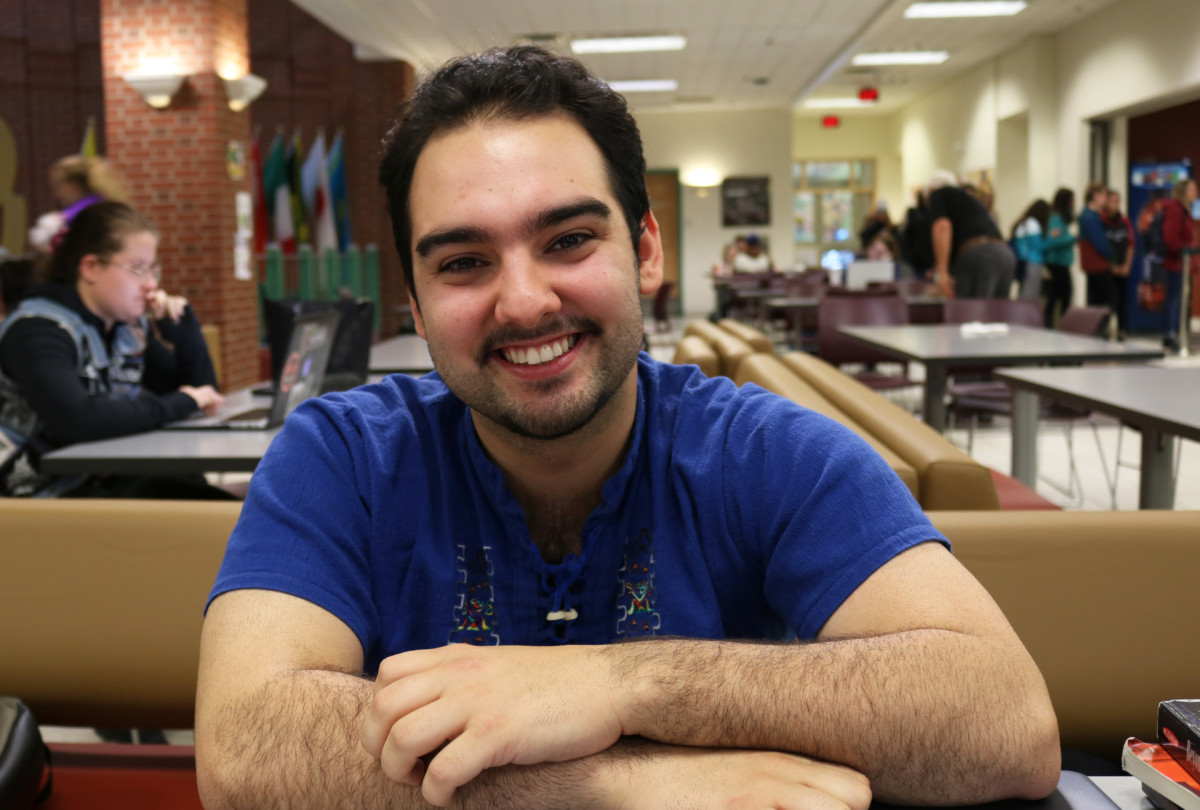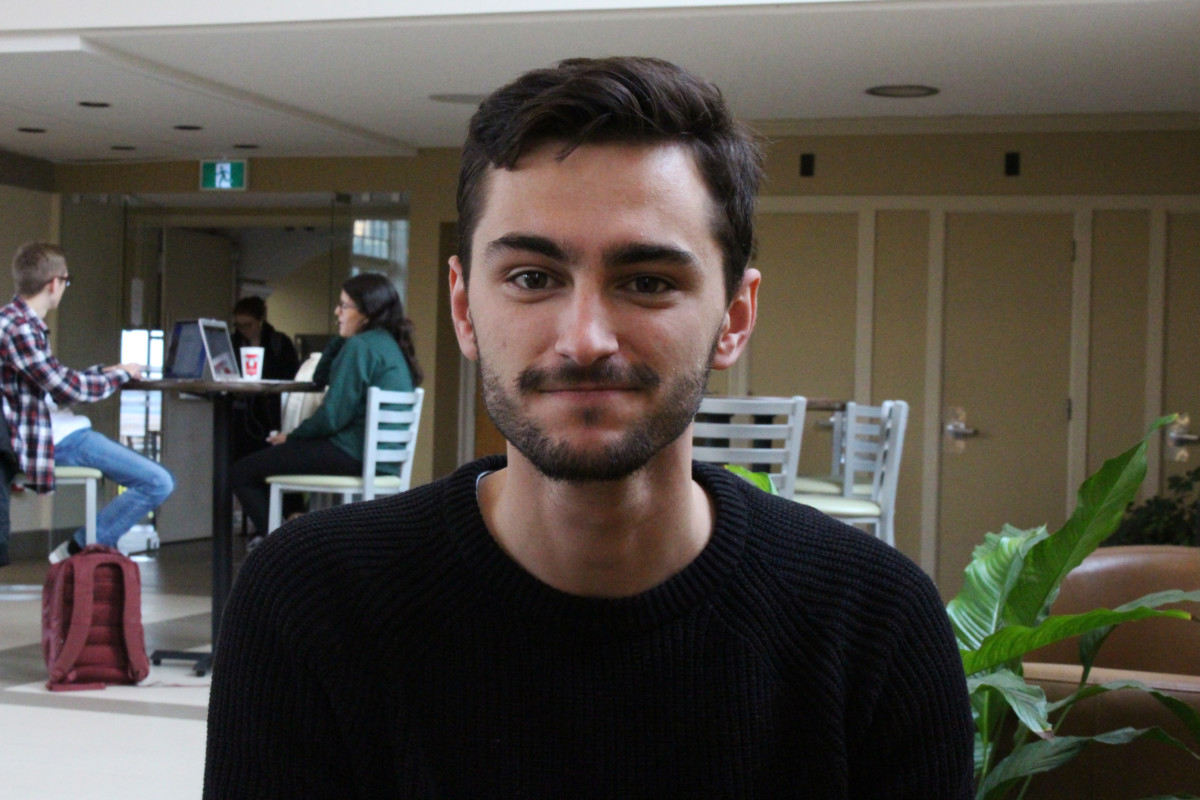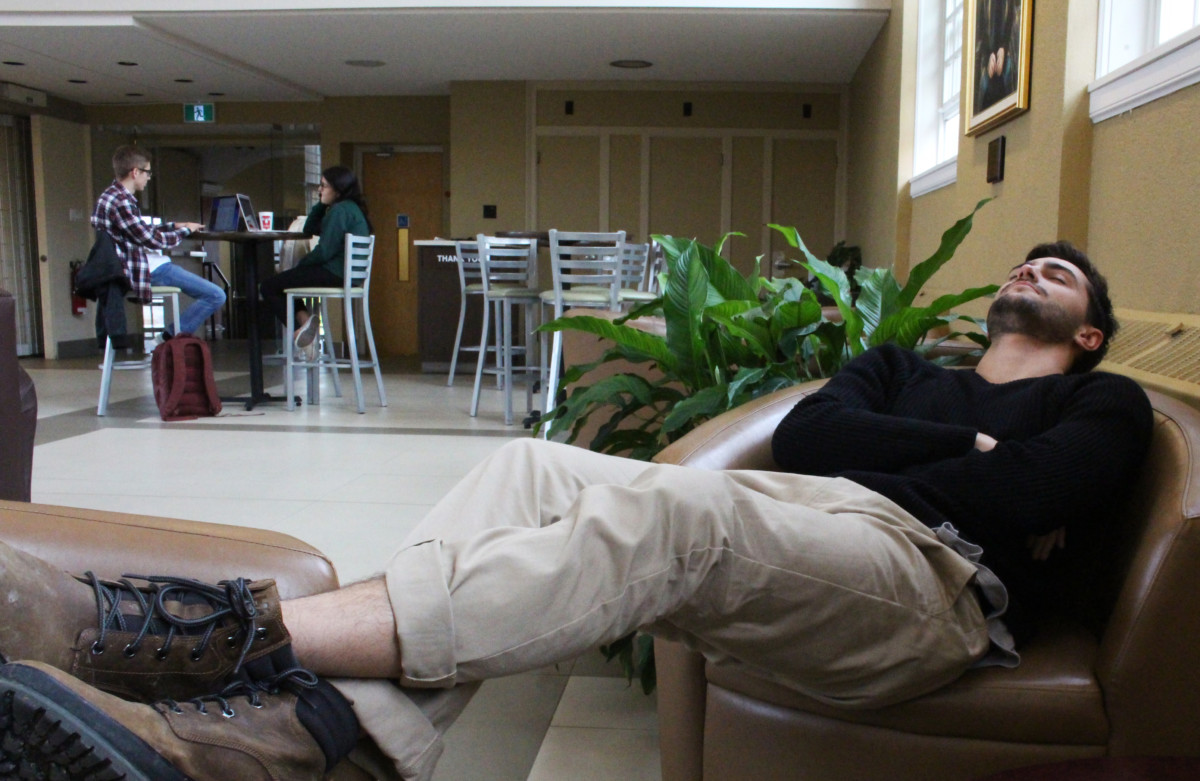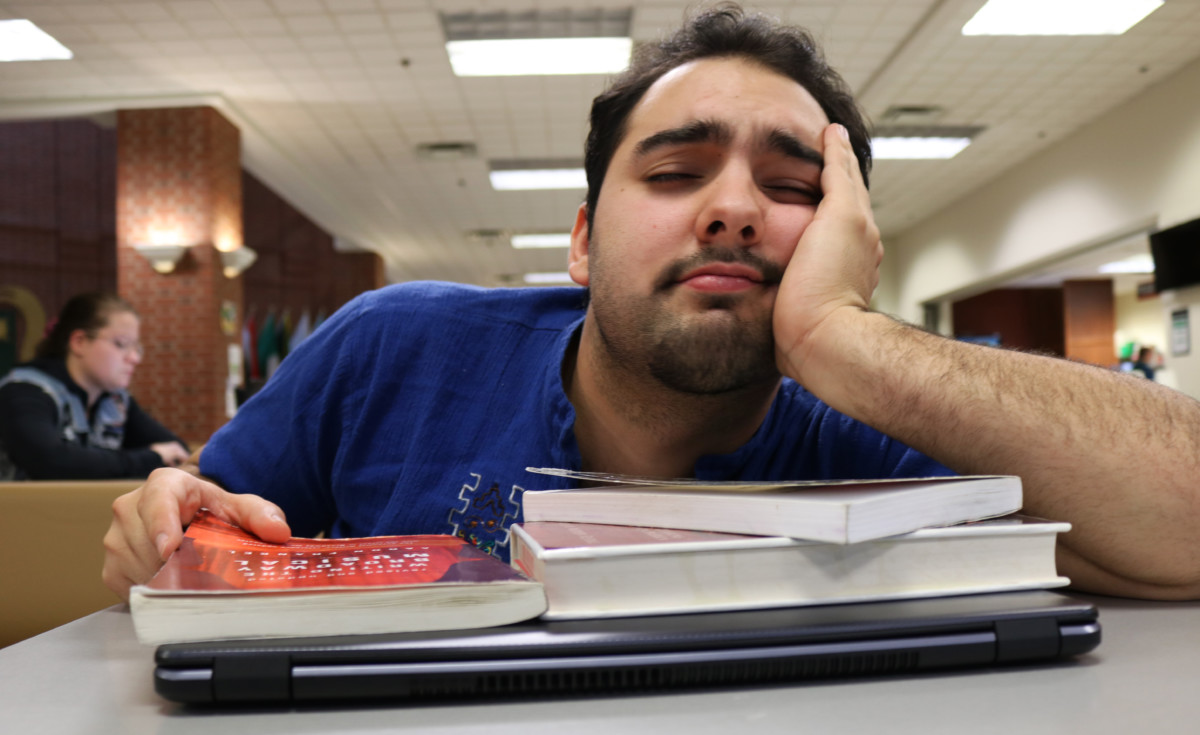Between classes, extracurricular activities and jobs, university students are burnt out. According to a 2015 study by Western University, more than 56 per cent of student stress is related to academics and almost 31 per cent of student stress is connected to employment issues.
St. Thomas University psychology professor Wendy Borque said she’s seen many students experience burnout. She said some students are equipped to deal with more pressure than others because they have better coping skills. Still, it’s important for students to remember that bad grades aren’t the end of the world, she said.
“You will recover from it. It’s hard when you’re in the moment to realize that, but it is a passing moment,” she said.
Second-year STU student, Natalia Rodríguez, spends 10 hours working at the international student office per week and two to four hours on the weekend helping students learn Spanish. Rodríguez also has an internship at Naveco Power but according to her, it’s not just work that can cause stress. Feelings of isolation from friends and family can also be challenging. With her workload, she said finding time to connect with friends and family isn’t easy.
“Sometimes I go weeks without talking to my best friend because we are both so busy,” she said.
Orion Jemberu, a second-year student from Ethiopia, also finds it hard to balance work and a social life. He said he’d like to do extracurricular activities but can’t find the time in his overloaded course schedule and said he doesn’t have time to organize himself.
“Second year is much worse,” Jemberu said.
“I would like to participate in extracurricular activities but I don’t have the time.”
Lucas Gutiérrez-Robert, a fifth-year student, said the best way to combat burnout is by being passionate about what you’re doing.

Gutiérrez-Robert said his third year at STU was the worst because he didn’t like some of the courses he was taking. He said feeling the need to excel in those classes caused the burnout. But this year is different because he said he’s handling the workload better and doing what he loves, even if he’s at school 12 to 13 hours a day.
“Even when I am crumbling, I don’t feel burned out in the same way because I was happy with how I spent my energy.”
Ezra Istvanffy took a break from STU after his second year to earn money and take a break from school. During his time off, he worked at Sports Check in the Regent Mall. Istvanffy said the year off helped him prepare to return.


“Instead of feeling like I was obligated to be here, I actually wanted to be here,” he said.
“I got the chance to really decide if this is the path I want to take in life.”
Since returning to STU, Istvanffy said he feels better about his work ethic. He felt burnt out the first weeks of school but learned ways to manage his time. Instead of going out with friends, he focuses on school work, which helps with grades and stress.


Istvanffy said students who feel burnt out should ask themselves if university is the right place for them. Still, he believes work might seem worse in the moment than it is.
“Take a moment to look at the work overall and you might realize it’s not as bad as you thought it was.”

